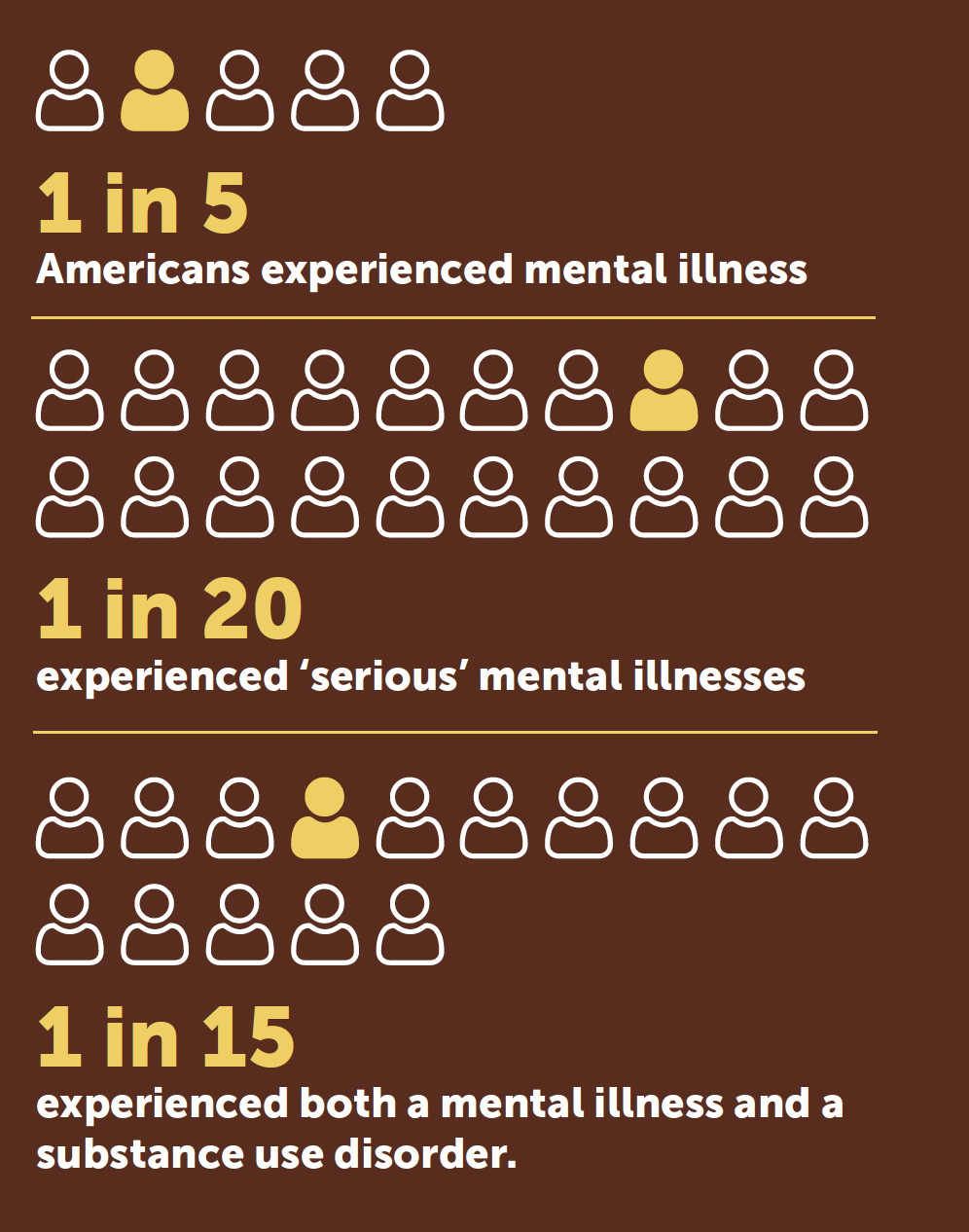Our vision for Any Given Day’s impact campaign is to create a more compassionate and just society for those who live with mental illness by reducing stigma and encouraging deeper discussions around criminal justice’s role in mental health treatment.
Impact

Our three-year impact campaign will:
- Increase the visibility of people who live at the intersection of mental illness, poverty, and substance abuse especially the disproportionate criminalization of people of color
- Increase the general public’s understanding of the challenges of treating people within a criminal justice system that’s designed to be punitive
- Increase awareness of the need for preventative solutions in community mental health treatment
- Champion the call for culturally-sensitive mental health treatment that considers the needs of high-risk populations
- Reduce the stigma of mental illness within BIPOC communities
Take a deeper dive below for ways to get involved and learn more.
Take Action
Having a mental health crisis is not a crime. Learn more about the Mental Health Justice Act of 2021.
Learn More
Learn more about the issues in the film … from mental health courts, disparities and policies.
Host a Screening
Show the film to spark concrete action and steps to improve mental health support services in Chicago and beyond.
Take Action
The issue of mental health is now not only relevant but crucial. Nearly one in five U.S. adults lives with a mental illness. According to the National Institute of Mental Health, that’s 52.9 million people in 2020. Unfortunately, those living with mental illness in our communities find themselves in jails and prisons. We believe that people living with mental illness need treatment not jails. We support efforts at the federal, state, and local legislative levels that call for the decriminalization of mental illness.
The Mental Health Justice Act of 2021 creates a grant program for states and local governments to train and dispatch mental health professionals to respond, instead of law enforcement officers, to emergencies that involve people with behavioral health needs. Click here to learn more about the proposed legislation and give your feedback on the bill.
In Illinois, the Community Emergency Services and Supports Act is an Illinois law that requires 911 to coordinate with mobile mental health response services being developed by the Illinois Department of Mental Health. The law requires emergency response operators to refer calls seeking mental and behavioral health support to a new service that can dispatch a team of mental health professionals instead of police.
Learn More
MENTAL HEALTH COURTS
As seen in the film, mental health court is meant to offer treatment and care, rather than punishment and incarceration, to individuals with mental illness and who are convicted of non-violent crimes.
To learn more about mental health courts across the United States, visit the National Center for State Court’s Behavioral Health Resource Hub.
DISPARITIES IN MENTAL HEALTH CARE
Large disparities persist across race and economic status in the United States with regard to knowledge of, diagnosis, and access to effective treatments for mental health challenges. The reasons range from cultural understandings about mental health to lack of access to care, transportation, and racism and bias in mental healthcare settings. The Mental Health Equity Act of 2020 seeks to address these disparities through funding that creates programs that provide integrated health care in areas for BIPOC communities. Click here to learn more about the act.
NATIONAL MENTAL HEALTH POLICY
To learn more about current policy and law initiatives in mental health, please visit The Bazelon Center for Mental Health Law and Meadows Mental Health Policy Institute.
